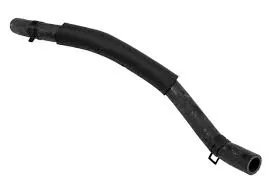diesel fuel line hose
Dec . 12, 2024 11:29 Back to list
diesel fuel line hose
Understanding Diesel Fuel Line Hoses Importance, Types, and Maintenance
Diesel fuel line hoses are critical components in any diesel engine system, playing a pivotal role in the transportation of fuel from the tank to the engine. These hoses are engineered to withstand the harsh conditions associated with diesel fuel, including high pressures, varying temperatures, and exposure to oil and other contaminants. Understanding these hoses' importance, types, and maintenance requirements can help ensure optimal performance and longevity of diesel-powered machinery.
Importance of Diesel Fuel Line Hoses
The primary function of diesel fuel line hoses is to facilitate the flow of diesel fuel to the engine. A well-functioning fuel line ensures that the engine receives a steady and uninterrupted fuel supply, which is crucial for proper performance. Poor fuel delivery can lead to engine misfires, reduced efficiency, and potentially costly repairs.
Diesel fuel line hoses must also be durable and resistant to degradation. Diesel fuel contains certain additives and impurities that can be harmful to non-compatible materials. High-quality hoses are designed to resist abrasion, cracking, and the effects of high temperatures. Utilizing inferior hoses can lead to leaks, which not only compromise engine performance but can also pose significant safety hazards due to the flammability of diesel fuel.
Types of Diesel Fuel Line Hoses
There are several types of diesel fuel line hoses available on the market, each designed for specific applications and conditions
. The most common types include1. Rubber Hoses Traditional rubber fuel hoses are widely used for their flexibility and resistance to various fuels. However, they can degrade over time due to exposure to diesel fuel and should be replaced periodically.
2. Synthetic Hoses Made from materials like fluoropolymer or reinforced nylon, synthetic hoses offer superior resistance to chemicals and temperature fluctuations. They are ideal for heavy-duty applications and provide enhanced durability.
3. Braided Hoses Braided fuel lines combine rubber or synthetic materials with a woven reinforcement layer, which provides additional strength. These hoses are commonly used in high-pressure environments, such as racing applications or heavy machinery.
diesel fuel line hose

4. Stainless Steel Hoses For extreme conditions, stainless steel hoses are an option. They provide unmatched strength and resistance to heat and corrosion. These are generally more expensive but are suitable for specialized applications.
Maintenance of Diesel Fuel Line Hoses
To ensure longevity and optimal performance of diesel fuel line hoses, regular maintenance is necessary. Here are some key maintenance tips
1. Routine Inspections Regularly inspect hoses for signs of wear, such as cracks, abrasions, or bulging. Look for any signs of fuel leaks or staining around the connections.
2. Temperature Monitoring Monitor the temperature of the engine and surrounding components, as excessive heat can degrade the hoses over time. Make sure the cooling systems are functioning properly to prevent overheating.
3. Proper Installation Ensure hoses are installed correctly without kinks or sharp bends that can restrict fuel flow. Use appropriate clamps and fittings to secure hoses without causing damage.
4. Fuel Quality Use high-quality diesel fuel and maintain clean fuel systems to minimize contaminants that can damage hoses. Consider installing a fuel filter to trap particulates before they reach the engine.
5. Timely Replacement Be proactive about replacing hoses even if they show only minor signs of wear. It is often more cost-effective to replace hoses on a schedule than to wait for them to fail, which can lead to significant engine damage.
Conclusion
Diesel fuel line hoses are a vital part of the diesel engine system, influencing fuel delivery efficiency and engine performance. By understanding the different types of hoses and their respective applications, as well as implementing good maintenance practices, operators can ensure the longevity and reliability of their diesel engines. Investing time and resources in quality components and regular maintenance can pay dividends in the form of reduced downtime and extended equipment life.
